3 emperors of ancient Rome, who amazed contemporaries and descendants with debauchery
Categories: History
By Pictolic https://pictolic.com/article/3-emperors-of-ancient-rome-who-amazed-contemporaries-and-descendants-with-debauchery.htmlNo one will argue with the fact that the Romans loved sex. Everyone is well aware of the frivolous mosaics of the lost Pompeii, frank statues and literary monuments of the ancient period, in which the inhabitants of the empire made it clear that intimacy in their lives played an important role. The Roman nobility became famous for their orgies, the details of which can confuse the director of a modern porn film, and the emperors, in general, did not deny themselves anything, giving free rein to the most unusual sexual fantasies.
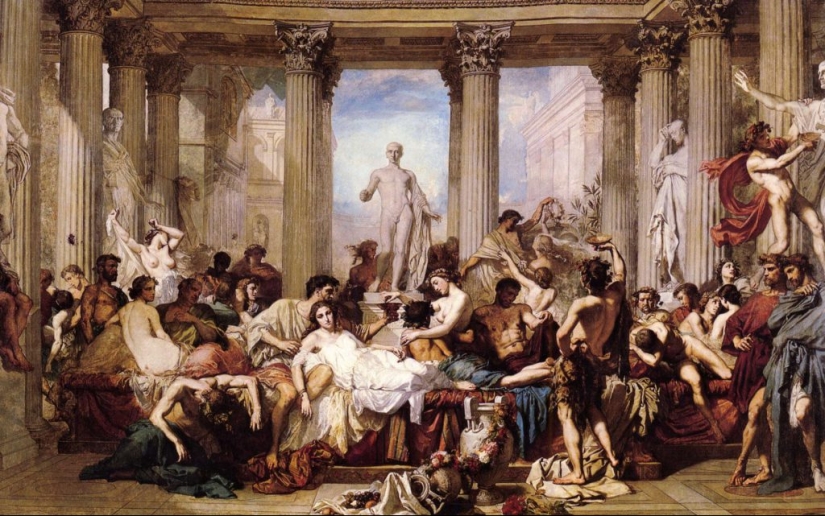
A well—known joke is that the Greeks invented sex, and the Romans invented having sex with women. In fact, this is not really a joke, since it is known that the whole life of a noble Roman was inextricably linked with sexual experience in its various manifestations.
Everyone was subordinate to the head of the family, from slaves to household members. The owner had every right to dispose of all aspects of their lives, including the most intimate ones. There are cases when representatives of the nobility lent their wives to friends, as did the prominent politician Marcus Porcius Cato the Younger. A friend took advantage of Mark's wife and, as if nothing had happened, returned her to her husband.
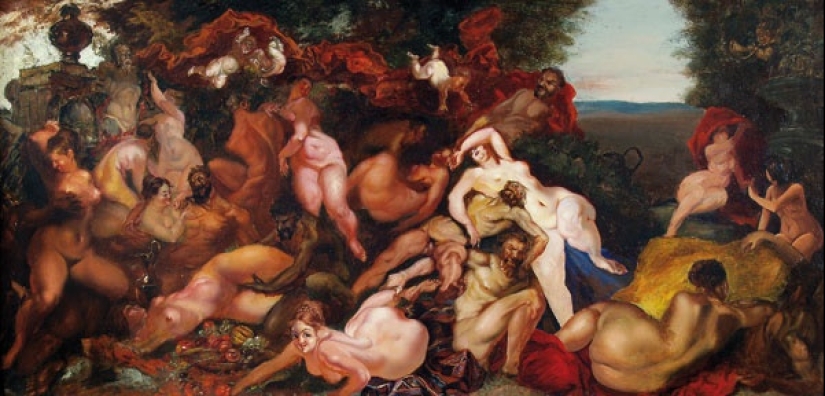
A free citizen had no restrictions at all in terms of sex, except for one. A self-respecting Roman should not have been in a passive role, and everything else was allowed. It was believed that a passive homosexual disgraced himself, his family and the whole of Rome, and this made the man an outcast.
At the same time, demonstrating their love in front of everyone was considered unworthy and even the most ardent lovers tried to avoid public demonstrations of feelings. Because of this rule, the poet Ovid suffered, who dared to sing his beloved in verse. The writer was exiled from Rome for a long time for this. It was necessary to love at home — it was considered a purely personal matter and unworthy of demonstration.
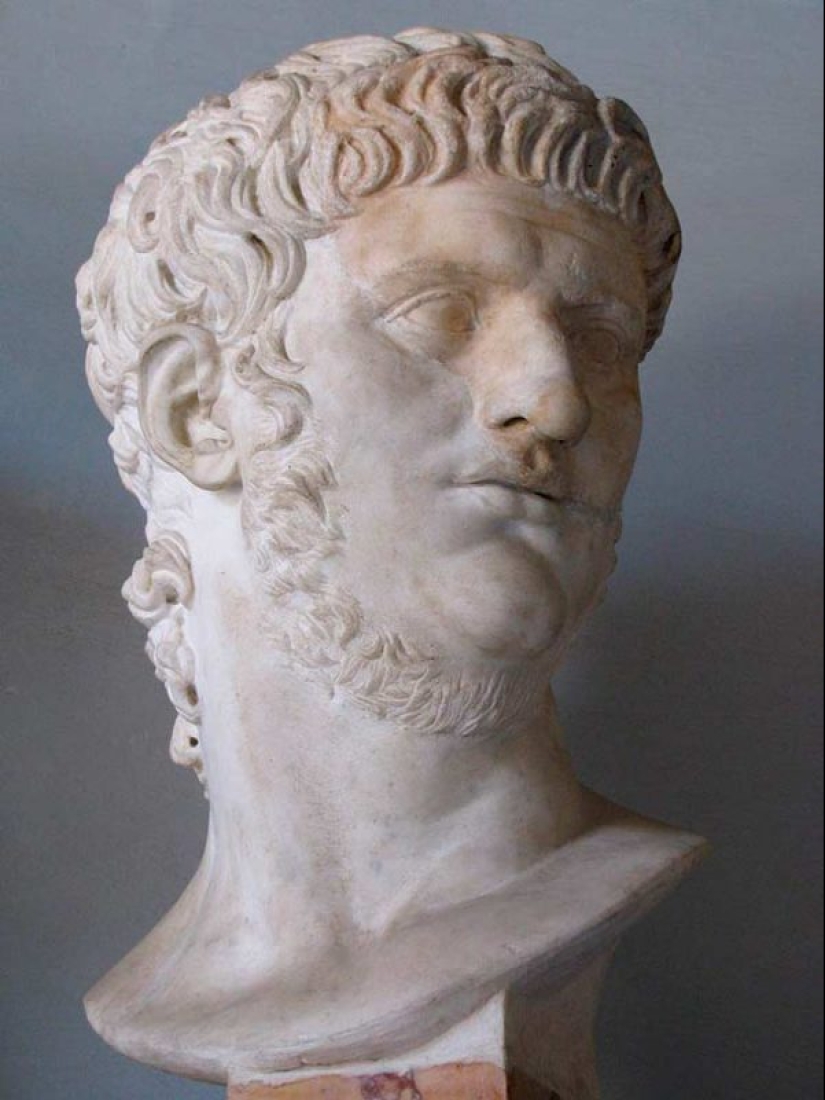
Nero Ahenobarbus became Emperor at the age of 17 thanks to the support of the triumvirate. The young man did not particularly delve into the subtleties of government, leaving this troublesome matter at the mercy of his mother Julia Agrippina, the philosopher Seneca and the praetorian prefect Burr.
Nero spent his free time, of which the young emperor had more than enough, in grandiose feasts and indescribable debauchery. There were rumors that Nero's mother was also connected not only with filial feelings, which, in principle, was not censured in Ancient Rome. The second passion in the life of a young man after debauchery was the theater, in which he played the role of gods and heroes.
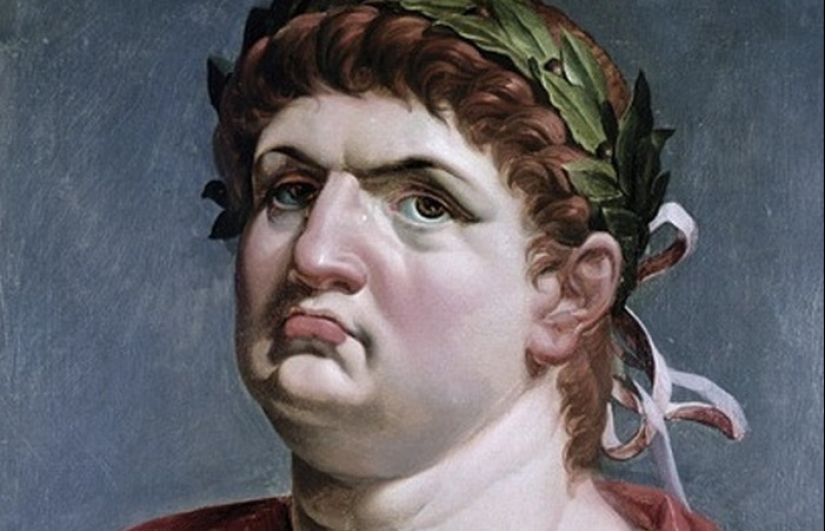
It should be borne in mind that a year before receiving the title of emperor, that is, at the age of 16, Nero got married. His half-sister Claudia Octavia became his chosen one. The emperor did not feel the slightest attraction to his wife, but, on the contrary, as soon as he could, humiliated her and made a mockery of her. But it was better than what Nero did to his brother Britannicus — he simply poisoned him.
At a fairly young age, the emperor discovered homosexuality. For a Roman, this was considered quite normal, not worth much attention. No one was confused by the fact that Nero was instilled in love with men by his mentor, the philosopher Seneca.
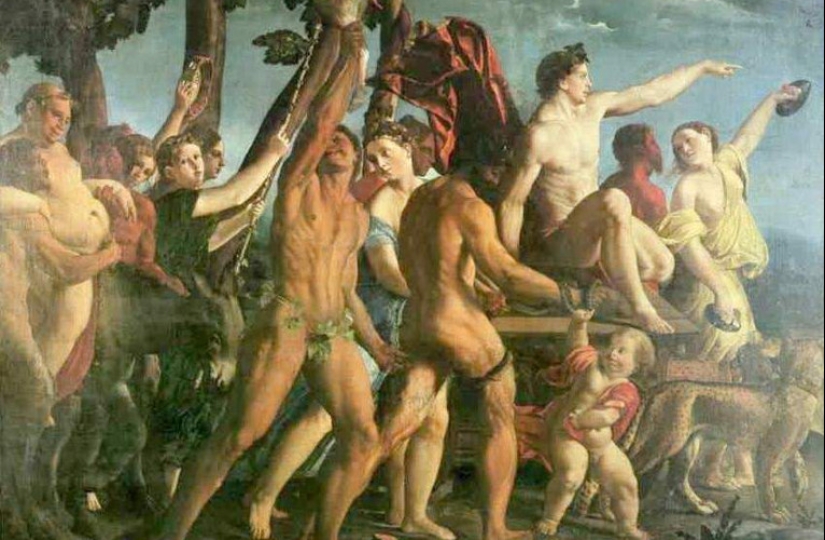
The historian Tacitus wrote that Nero's lover was his brother on the stage — the young actor Paris. Many ancient authors mention a strange rite of "wedding" of young people, where the role of the bride was performed by the emperor. Tacitus wrote the following with great disapproval about the dissolute ruler:
Later, the ruler completely lost his temper and went so far as to rape men and women, and often married. He went so far as to force the priestesses of the goddess Vesta, who took a vow of celibacy, to participate in orgies. In 64, there was a huge fire in Rome and many believe that the city burned at the whim of Nero, who wanted to rebuild it in a new way, at his discretion.

Nero, like many other Roman rulers, ended his life very badly. During the revolt in Gaul, the senate declared the emperor an enemy of the state, and friends and relatives turned away from him. In desperation, Nero ordered a grave to be dug for himself and cut his throat near it.
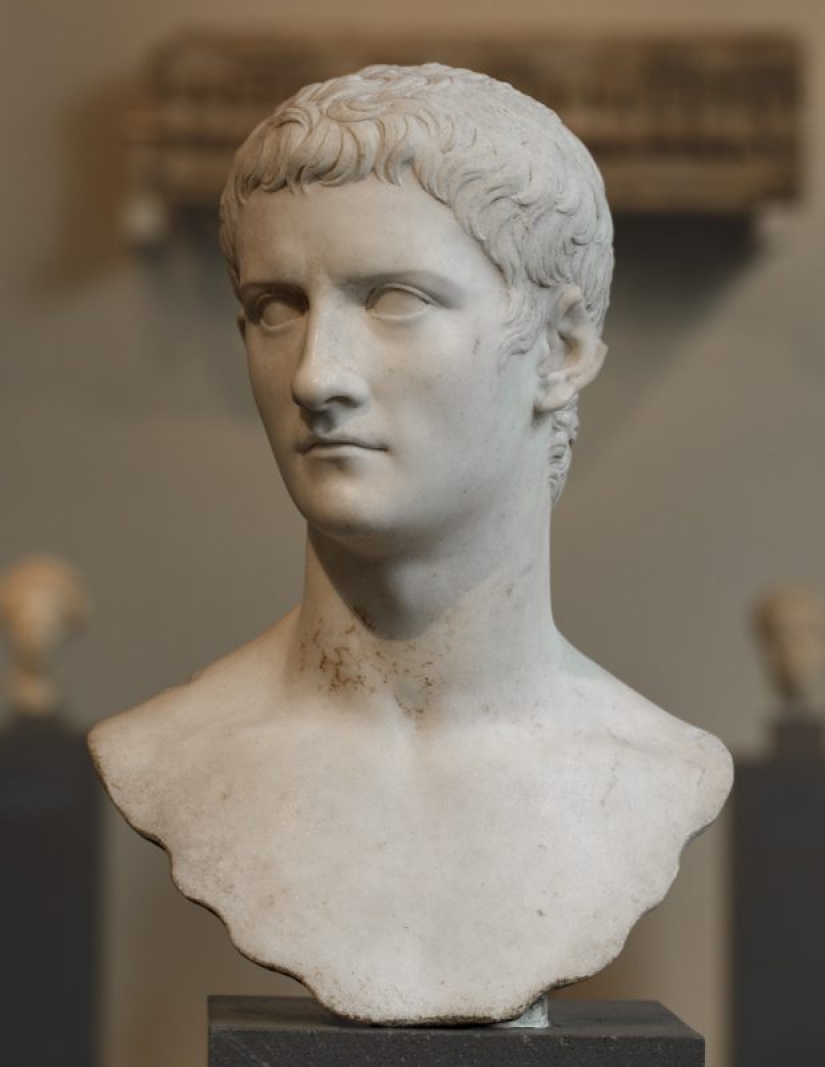
Before Nero, there was also an extraordinary and dissolute man in power — Gaius Caesar, nicknamed Caligula. Most contemporaries and historians consider this emperor to be mentally retarded and at the same time a very dangerous psychopath. From his mother, the dissolute Agrippina the Elder, Caligula inherited excessive sensuality, and from his father Germanicus — epilepsy and extravagant predilections in sex.
From his early youth, Caligula showed extreme cruelty. The historian Suetonius told how once the emperor ordered to beat the overseer of gladiatorial fights with a chain for several days in a row and killed him only after feeling the "stench of a rotting brain."
At his feasts, in which no one could refuse to participate, Caligula could, at his discretion, execute guests who did not like him for something. In addition, he did not miss a single woman he liked, forcing even his own sisters to have sex, not to mention the wives of notable citizens.
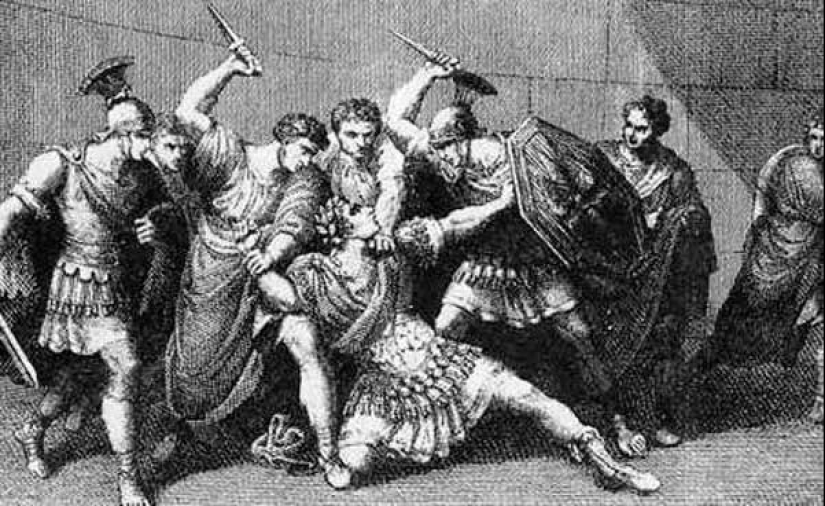
Death of Caligula
The emperor liked to show his wife naked to people or take her out in a helmet and with a shield to the soldiers. Caligula did not avoid relationships with men either — among his lovers was the pantomime actor Mnester and the young man Valery Catullus.
Caligula's morbid love-making was combined with incredible extravagance. Magnificent gilded ships were built for the emperor, fantastic palaces were erected, and his horse was kept in a marble stable under a blanket of gold-embroidered brocade.
The end of Gaius Caesar Caligula was natural — he squandered the fortune left to him by his predecessor Tiberius, after which he was stabbed by his own officers. Suetonius mentions that when killing the hated emperor, the conspirators pierced his genitals with swords, as the most hateful thing about this man.
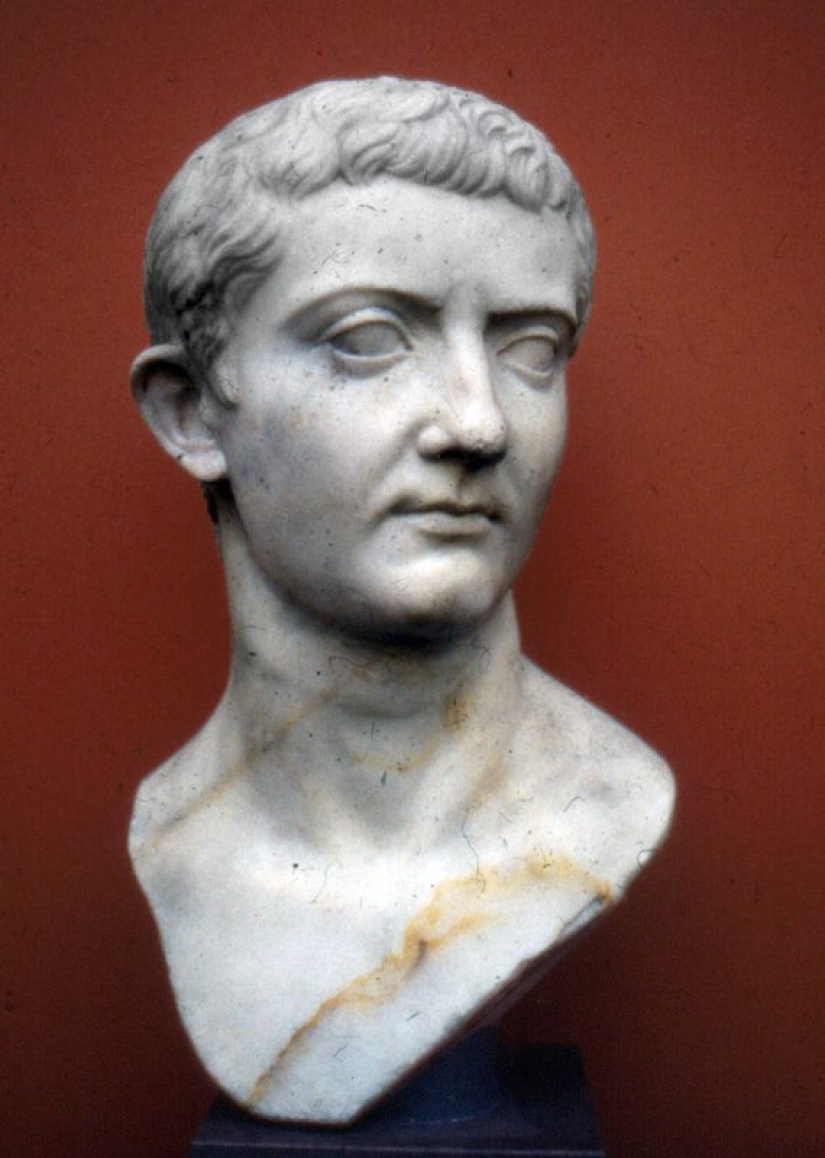
The predecessor of Caligula and Nero, Emperor Tiberius, differed favorably from his colleagues at least in that he was not only a libertine and a scoundrel, but also a talented politician. During his reign, Rome experienced an upsurge and again began to inspire respect for its neighbors.
But in life, a successful ruler was a man-hater and a cynic who was wary of absolutely everyone. Tiberius ruled his empire mainly from a well-fortified residence on the island of Rhodes. Family dramas and political intrigues affected the psyche of the emperor and he began to be afraid of even close people in his old age.
When Tiberius was forced into society, his social phobia manifested itself in extreme hypocrisy and arrogance. But Tacitus, already known to us, had his own explanation of the emperor's love of solitude — the historian believed that by isolating himself from society, the ruler hid his disgusting vices from everyone.
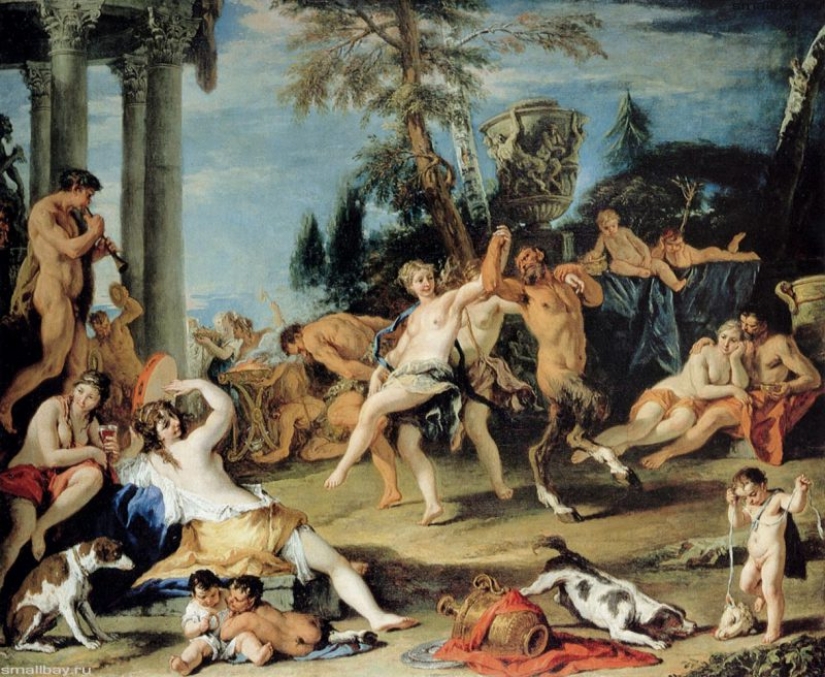
Contemporaries attribute drunkenness, a love of peeping and incredible sensuality to Tiberius. In one of his palaces, located on the island of Capri, Tiberius equipped a real nest of debauchery, with pools, baths and secret rooms.
Girls and boys were taken to this residence by order of the emperor, who were forced to copulate with each other, arranged in a triple chain. These orgies were designed to awaken passion in the aging Tiberius, which turned out worse and worse every time. Therefore, group sex sessions became more and more massive and sophisticated every time.
In relations with women, the dissolute ruler of Rome was tough and unscrupulous. One of his mistresses, the noble matron Mallonia, refused to participate in the sophisticated orgy of the sensualist. Offended by this, Tiberius committed a meanness, slandering a woman and putting her on trial. He himself was present at the meeting and hypocritically asked his former lover if she regretted her refusal. By the way, the old satire failed to break Mallonia, and she finally called him a "smelly old goat", giving rise to a lot of jokes among the people.
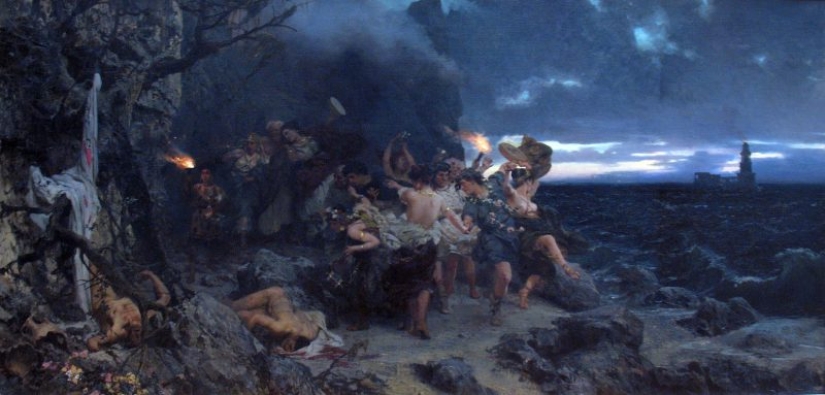
Tiberius' orgy on the island of Capri. Artist Henry Semiradsky
In his Annals, Tacitus describes with disgust the emperor's amusements on the island of Capri. The older the ruler became, the more he preferred men, and chose for his entertainment not just pretty young men, but the offspring of the most influential aristocratic families.
In the event that young people refused the invitation of the sensualist to visit the island of debauchery, the servants of the emperor forced them to do so by force, sometimes simply kidnapping.
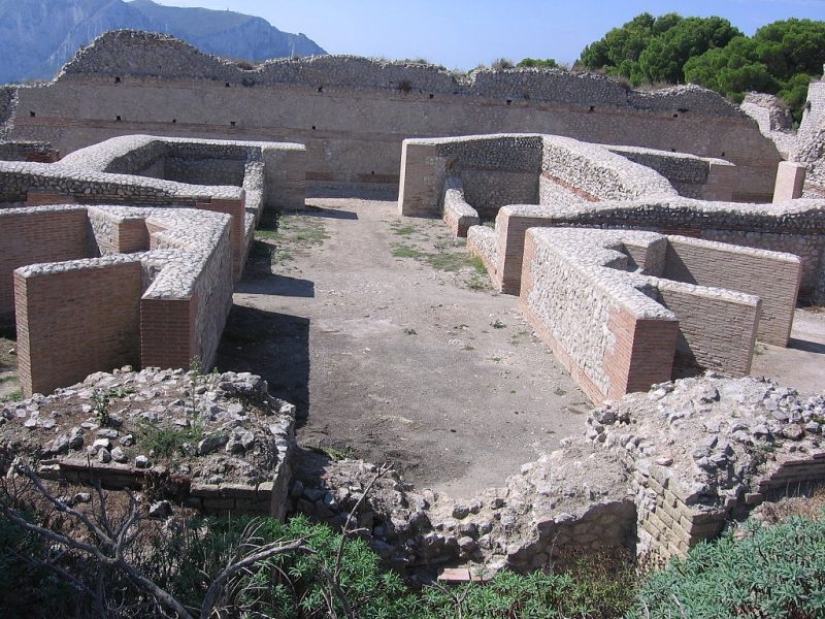
The ruins of the "Villa of Jupiter" in Capri, where Tiberius had a great time
Tiberius died, as expected, not by his own death, although versions about the causes of his death differ. Some historians claim that Caligula strangled him, others talk about poisoning. There is also a version that those who hated the emperor simply starved him to death when Tiberius fell ill with a fever and could not move independently.
From such authors as Tacitus and Suetonius, we can learn a lot about the peculiar customs that reigned at the courts of the Roman emperors. However, many later historians questioned the reliability of these facts, as they were too shocking. It is possible that the truth is somewhere in the middle, but we may not recognize it - no one has seen documentary evidence of the debauchery and cruelty of Nero, Caligula and Tiberius.
Recent articles

In the fall of 1972, Bill Yates traveled through the countryside in the vicinity of Tampa, Florida. At that time, he was studying ...

Severe cold weather does not give up its positions. We offer you to admire the magical photos of winter Europe, because snow and ...

Vladimir Lyubarov is an artist from the countryside who paints pictures of real life. But he brings amazing characters, birds, and ...